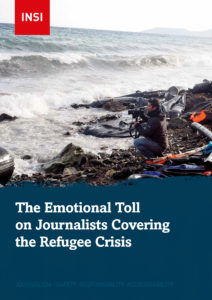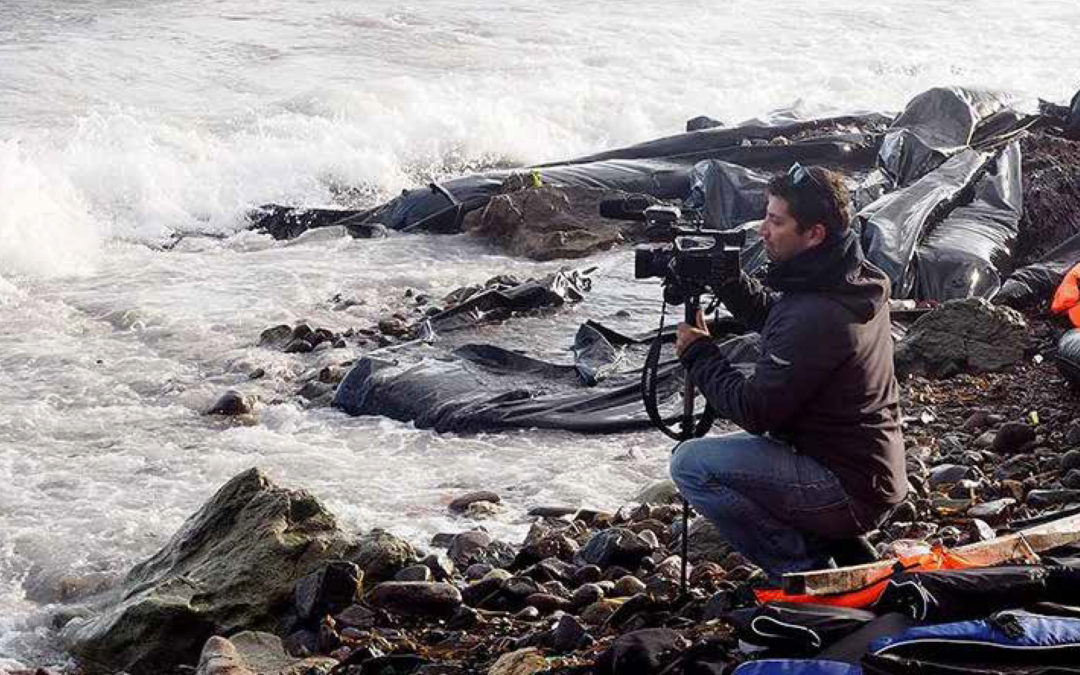Journalists covering the refugee crisis have been affected by moral injury, according to a report published by the International News Safety Institute (INSI), which warns that this issue has the potential to have a significant impact on their mental health if nothing is done to prevent or treat it.
 “The Emotional Toll on Journalists Covering the Refugee Crisis” is the first study of its kind into the response of news media professionals covering a humanitarian crisis and was prompted by the arrival in Europe by sea of more than one million migrants in 2015.
“The Emotional Toll on Journalists Covering the Refugee Crisis” is the first study of its kind into the response of news media professionals covering a humanitarian crisis and was prompted by the arrival in Europe by sea of more than one million migrants in 2015.
Published by the Reuters Institute for the Study of Journalism, it shows how moral injury – a condition linked to experiencing events and behaviour that violate one’s moral compass – emerged as the biggest psychological challenging faced by those covering the refugee crisis.
“We recognise that the trauma experienced by journalists as witnesses could never be equated with the suffering endured by the migrants, but we wanted to try to better understand what some journalists were experiencing so we could ensure those covering the refugee crisis could continue their important work of recording history,” said Hannah Storm, INSI director, and co-author of the report with neuropsychiatrist Professor Anthony Feinstein.
Nine major European and North American news organisations took part in the survey, which included 114 journalists. In addition to the quantitative survey, various industry-wide interviews and meetings were carried out which corroborated the survey findings.
 Yannis Behrakis (pictured left) turned his camera on his home country of Greece where he began covering the story in April 2015.
Yannis Behrakis (pictured left) turned his camera on his home country of Greece where he began covering the story in April 2015.
“A lot of times you are not sure what to do: leave the camera and actively help people come out of the sea or do practical things for them, drive them up the road, or give them clothes, or take their pictures,” said Behrakis, who works for Reuters, in an interview for the report.
“Of course, I always think this is the way I help and this is my job to make sure that everybody around the world knows what is happening and that is my mission.”
Key findings from the survey included:
- Local journalists, parents and those working alone with no previous experience covering war are more likely to experience moral injury.
- Moral injury is linked to an increased workload and a perceived lack of support from employers.
- Neither post-traumatic stress disorder (PTSD) nor depression posed a significant risk for journalists covering the refugees.
“Moral injury is not a mental illness, which can be reassuring, but it should not be taken lightly for it comes with its own set of challenges,” said Feinstein. “It is to be hoped that the results of our study act as the impetus for an industry-wide discussion on how moral injury can be addressed and what changes need to take place,” Feinstein added.
The report concludes with a set of considerations for the news industry on how to support and educate those at risk of developing moral injury, and shows how its findings could have relevance to those working in other stories in non-conflict areas that have a traumatic content, such as domestic terror threats.
